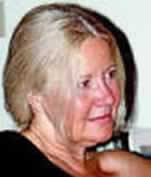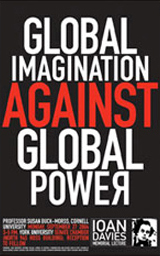Globalization has profoundly changed the conditions of image production and dissemination, demanding theory to assess visual culture as a force for collective cognition that can effect political change. Visual Studies rests at a critical juncture that can engage this force by reorienting the study of images to see them not as representational forms but as building blocks of collective imagination.
Artists and activists have already begun to take up the political stakes of the image, allowing us to see the potential of global accessibility and infinite appropriation. By drawing upon diverse examples from Surrealist art to contemporary media events to her own personal photographs, Buck-Morss illuminated the opportunities and obstacles for global visual culture and new spaces for collective action.
 Susan Buck-Morss is professor of political philosophy, social theory and visual culture at Cornell University. She is also a renowned author and scholar whose work is considered essential reading for students of critical theory. Her books include The Origin of Negative Dialectics: Theodore W. Adorno, Walter Benjamin and the Frankfurt Institute (Free Press, 1977), The Dialectics of Seeing: Walter Benjamin and the Arcades Project (MIT Press, 1989), and Dreamworld and Catastrophe: The Passing of Mass Utopia in East and West (MIT Press, 2000). She has also authored several influential essays, including "Aesthetics and Anaesthetics: Walter Benjamin's Artwork Essay Reconsidered" (October, Fall 1992) and "Hegel and Haiti" (Critical Inquiry, Summer 2000).
Susan Buck-Morss is professor of political philosophy, social theory and visual culture at Cornell University. She is also a renowned author and scholar whose work is considered essential reading for students of critical theory. Her books include The Origin of Negative Dialectics: Theodore W. Adorno, Walter Benjamin and the Frankfurt Institute (Free Press, 1977), The Dialectics of Seeing: Walter Benjamin and the Arcades Project (MIT Press, 1989), and Dreamworld and Catastrophe: The Passing of Mass Utopia in East and West (MIT Press, 2000). She has also authored several influential essays, including "Aesthetics and Anaesthetics: Walter Benjamin's Artwork Essay Reconsidered" (October, Fall 1992) and "Hegel and Haiti" (Critical Inquiry, Summer 2000).
In her most recent work,Thinking Past Terror: Islamism and Critical Theory on the Left (Verso, 2003) she investigates the possibility of a new progressive global politic and how the Left might go beyond critique to engage real political alternatives.


